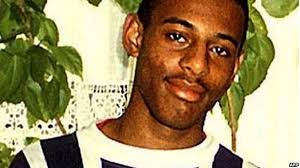Breonna Taylor: A Catalyst for Police Reform

Introduction
The tragic death of Breonna Taylor on March 13, 2020, sparked widespread protests and conversations about police reform and systemic racism not just in the United States, but around the world. Taylor, a 26-year-old emergency medical technician, was shot in her home by Louisville Metropolitan Police officers executing a no-knock warrant. Her story resonates with ongoing issues of racial injustice and law enforcement practices, making it a significant topic for discussion and reflection in the UK and beyond.
The Circumstances of Her Death
Breonna Taylor was at home with her boyfriend, Kenneth Walker, when officers entered the premises after midnight. Believing that they were intruders, Walker fired a shot which led to the police returning fire, resulting in Taylor’s death. The incident ignited protests globally, particularly within movements advocating for Black Lives Matter, emphasising the urgent need for police accountability and changes in legislation concerning the use of no-knock warrants.
Impact and Reactions
The outcry following Taylor’s death led to significant public and political pressure. In June 2020, the Louisville Metro Council passed an ordinance banning no-knock warrants in response to her killing. Additionally, the hashtag #SayHerName gained traction, aiming to highlight the stories of Black women who have been victims of police violence. Activists and organisations across the UK have echoed calls for similar reforms, drawing parallels with local issues surrounding racial inequality and policing practices.
Continuing the Fight for Justice
In light of ongoing protests, the conversation around Breonna Taylor’s legacy has transcended national borders, as activists in the UK work towards reforming police practices and addressing systemic racism within their own jurisdictions. Events commemorating her life have taken place, fostering solidarity and awareness about the broader implications of racial injustice. The call for enhanced training for police officers, greater accountability mechanisms, and community engagement continues to gain momentum.
Conclusion
The case of Breonna Taylor remains highly significant in the contemporary discourse surrounding police reform and racial inequality. As the world reflects on her tragic story, it acts as a catalyst for change, prompting discussions about justice that resonate beyond the United States. The ongoing movement for racial equity in policing serves not only as a response to her untimely death but also as a powerful reminder of the collective responsibility to advocate for reforms aimed at preventing future tragedies. As issues of race and policing evolve in societal consciousness, the legacy of Breonna Taylor serves as both an inspiration and a call to action for communities around the globe.









